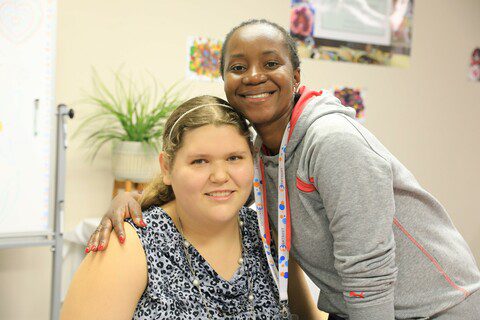How Much Does PDD Pay in Alberta?
To qualify for PDD, you must have a developmental disability from childhood. This ailment must be severe enough to impair daily activities and adult independence.
Read More
Apr 28, 2021
This two-part series provides a snapshot of Entrust’s assessment process, supportive model and how our team-oriented approach benefits our clients and guardians.
Read Part 1 here.
Client intake is often a very stressful process for guardians. Entrust’s proactive approach to planning based on the client’s assessment is designed to make the onboarding process as smooth as possible for all involved.
Our client assessment process isn’t only about the client, it’s about the guardian, too. Building a good relationship with the guardian is very important to our team.
We understand that guardians often feel anxious or stressed while navigating the assessment process. The decision to trust outside agency care can be a difficult one; we do our best to understand each unique situation and make clear the ways in which we can help. We never add pressure to their situation and we listen and respond carefully to any concerns they have. We also keep the lines of communication open and are always ready to answer any questions they have through the assessment process and beyond.
We believe in a Supportive Care Model at Entrust; recognizing self-determination in our clients, respecting their unique needs and building on their strengths is incredibly important to us.
There are countless examples where the information we’ve gathered in our assessment process has allowed us to create a specific plan to keep the client safe and well.
A recent example is a complex case with a client who has several medical conditions, the most urgent being a condition with excessive water consumption. In fact, the first thing the client’s guardian said to our team was, “My son has a condition with water and he could die.”
Our first priority was to communicate the gravity of the client’s condition to our staff and create a plan to keep him safe. The plan included things like:
This plan helps us stay proactive in this client’s safety and helps prevent him from harming himself.
Our proactive approach to client assessment helps support our team members as well. Fundamental to our organization’s approach is the understanding that our clients’ behaviours are secondary to the nature of their disability and a way to communicate their needs.
In supporting our clients to meet their needs, our staff consider their words or actions as a response, rather than an intentional behaviour. Assessing our clients, their history and sharing that information with our whole team helps everyone to better understand their needs and behaviours from day one.
All in all, the level of support we can offer our guardians and the quality of care we can provide our clients starts in the client assessment phase. Detailed information gathering, a supportive care model and strong communication within our organization are a large part of what let’s us go a step above when it comes to supporting our clients.
To qualify for PDD, you must have a developmental disability from childhood. This ailment must be severe enough to impair daily activities and adult independence.
Read MoreThis guide covers what FSCD offers and provides resources for more information. Knowing the program and eligibility requirements helps make the process smoother for applicants.
Read More